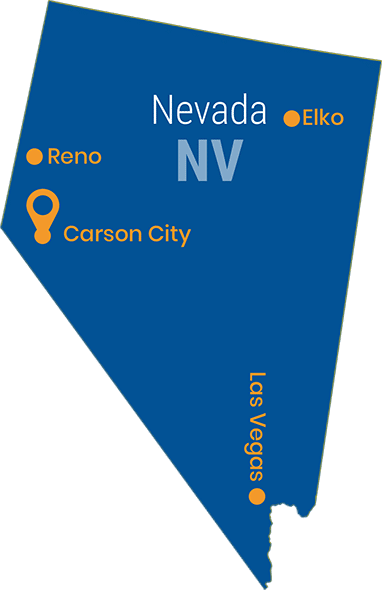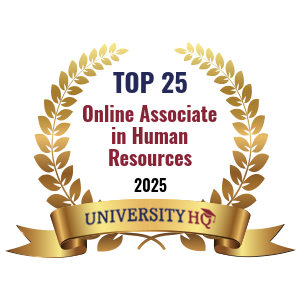What is Human Resources?
Many colleges and universities in Nevada offer degree programs in human resources management and other closely related areas of study. While employment opportunities vary, many who major in this subject have the knowledge and skills needed to orchestrate various aspects of manpower and benefits programs for companies. Businesses in almost every industry rely on professionals with this expertise, but work is most prevalent in the business, finance, education, and healthcare sectors.
Human resources managers generally work for companies and organizations, with employment opportunities available in almost any industry. Positions are most prevalent, however, in the professional, scientific, technical services, management, and manufacturing sectors. Relevant jobs are also common in healthcare, social assistance, and the government.
While responsibilities can vary, these professionals tend to provide a wide range of services that help bridge the gap between leadership and all other employees. They regularly plan, coordinate, and direct administrative tasks related to workforce management. Other duties commonly assigned include addressing staff issues through mediation and disciplinary procedures, participating in job interviews, and providing in-take briefings. Additionally, depending on the position, they may be expected to oversee recruitment processes and staff training or process new employee and retirement paperwork. Human resource management professionals are also often instrumental in strategic planning, as well as keeping top executives informed regarding the overall satisfaction of workers.
Notably, it’s possible for these professionals specialize in one or two aspects of the field. Some popular areas of expertise include:
- Compensation and Benefits Managers
- Training and Development Managers
- Labor Relations Directors
- Employee Relations Managers
- Payroll Managers
- Recruiting Managers
- Staffing Managers

Featured Online Programs
Online Human Resources Education in Nevada
According to the US Bureau of Labor Statistics (BLS), employment for human resources managers is projected to grow 7% from 2021 to 2031. This is about as fast as the average for all occupations and will result in an increase of about 16,300 jobs openings each year. Job outlook for human resources specialists is slightly better, however. Employment for this profession is expected to increase by 8% from 2021 to 2031, which is faster than the average for all occupations. This will result in an additional 81,900 relevant job openings each year. While these are often considered entry-level positions, they do provide a good means of employment for graduates.
Professional and business services is the third largest industry in Nevada, accounting for $19 billion in revenue each year. Individuals skilled in human resources may also be able to find work in other top sectors within the state. These include manufacturing, real estate, education, healthcare, finance, wholesale, retail, entertainment, information, and construction.
Based on data provided by the BLS, Nevada employed 1,690 human resources managers and 6,120 human resources specialists as of May 2022. The annual mean wage reported for these jobs ranged between $65,000 and $97,210. Even the lower end of this income scale is above the state’s annual mean wage of $55,490 for all occupations.
While prospective students can enroll in human resource management programs at colleges and universities throughout the United States, those who intend to work in Nevada may want to give preference to local institutions. These schools will offer the most geographically relevant education, preparing graduates to meet the standards and expectations of employers throughout the region. Options among Nevada schools include Las Vegas University, the University of Nevada Lee Business School, Nevada State College, Great Basin College, the College of Southern Nevada, and other collegiate schools. Those who are looking to attend online programs might want to consider Full Sail University, Capella University, or a local public school with appropriate courses. Popular schools, especially community colleges, often accept more students every year and are easy to gain acceptance to.
Colleges and universities in Nevada and throughout the United States offer higher education degrees in human resource management and other related areas of study. Prospective students can typically choose from in-person and online enrollment options at the associate, bachelor’s, master’s, and doctoral levels.
While companies and organizations generally establish their own education standards for workers in this field, human resources professionals tend to possess some amount of higher education. Some entry-level jobs do exist and employers may hire candidates with high school diplomas or GEDs only, but these opportunities are limited. According to the US Bureau of Labor Statistics, candidates usually need bachelor’s degrees in human resources or a related major such as business, communication, or psychology.
Online Associates (AS)

Associate degrees in human resource management generally consist of 60 credit hours of coursework that take full-time students approximately two years to complete. These are undergraduate programs typically comprised of both general liberal arts and major-specific class requirements. This results in students studying various topics in communication, mathematics, science, and analytical thinking while also receiving a broad introduction to the human resource management field. Curriculums vary, but often include different courses and instruction in talent acquisition, labor laws, conflict resolution, and compensation benefits.
It's important to note that graduates at this level will rarely qualify for jobs as human resources managers. They can, however, pursue employment as human resources assistants, human resources associates, and administrative assistants. Alternatively, graduates can choose to continue their education by enrolling in bachelor’s programs. Individuals who have completed associate degrees are often able to transfer the credits they earned previously and apply them towards their new programs. Most colleges and universities accept 60 to 90 hours of coursework from other accredited institutions, which is usually equal to two years of higher education or approximately half of a four-year degree.
Online Bachelors (BS or BHRM)

Bachelor’s degrees in human resource management often consist of 120 credit hours of coursework that take full-time students approximately four years to complete. These are undergraduate programs, as well, and are still comprised of both general liberal arts and major-specific class requirements. In addition to studying various topics in communication, mathematics, and science, students are likely to receive instruction in business, accounting, team building, organizational psychology, and conflict resolution techniques.
Many colleges and universities also provide those enrolled with opportunities to select concentrations. This allows students to tailor the learning experience to better meet their ultimate career goals. This is a particularly great way to acquire specialized knowledge and skills in related sub-fields, with a main focus on business administration.
Concentrations that may be available with a degree in business administration include:
According to the US Bureau of Labor Statistics (BLS), the standard minimum education requirement for most human resource management professions is a bachelor’s degree. Graduates may also be qualified to pursue careers as corporate recruiters, compensation and benefits managers, and training and development specialists.
Alternatively, graduates can choose to continue their education by enrolling in master’s degree programs. While not always necessary to gain employment, advanced degrees can significantly improve overall job prospects and lead to higher-pay. Prospective students should be prepared to meet established minimum grade point average (GPA) and Graduate Record Examinations (GRE) score requirements set by their chosen institution.
Find Your Online Human Resources Management Program
Online Masters (MS or MHRM)

Master’s degrees from human resource management schools generally range from 30 to 36 credit hours of coursework that take full-time students approximately two to three years to complete. As graduate programs, they no longer incorporate general liberal arts classes. In some cases, however, prospective students may need to have taken certain undergraduate prerequisite courses prior to enrollment. This ensures they have the foundational knowledge and skills necessary to succeed in upper-level courses.
Human resource management degrees differ in curriculum from institution to institution, but students can typically expect to study business strategy, organizational change management, organizational ethics, effective team leadership, personnel staffing, and worker evaluation. Instruction in human resources strategy, organizational culture, and talent management is also common. Those who earn Master of Business Administration (MBA program) degrees can complete a human resource management concentration. You may also be able to earn an advanced certificate from certificate programs run by professional associations.
Graduates often qualify for employment as human resources managers, as well as management positions in other industries. It’s not uncommon for individuals with this type of degree to be hired as compensation and benefits managers, senior human resources managers, labor relations specialists, or human resources information systems managers.
Online Doctorate (PhD)
A PhD or doctorate in human resource management generally consists of between 60 and 120 credit hours that take full-time students up to seven years to complete. While curriculums vary by institution, those enrolled are likely to receive instruction in compensation management, foundations of human resources theory and practice, recruiting and retaining talent, organizational behavior and performance, and creating adaptive workplaces.
Many colleges and universities also offer concentrations in the following areas:
- Human Resources Management
- Organizational Management
- Training and Development
- Benefits and Compensation
- Higher Education
Degrees of this type are structured differently from those at lower levels. While the first year or two of enrollment are typically dedicated to traditional classroom learning, students often spend their later years conducting independent study and qualitative research. Students must also spend a lot of time preparing dissertations, which are typically required for graduation.
As terminal degrees, PhDs are meant to prepare students for the best employment opportunities in the field. Graduates are often qualified to apply for advanced positions as postsecondary educators, human resources consultants, and industrial/organizational psychologists.
Become a Human Resources Manager in Nevada
To become a human resources manager in Nevada, you will need some amount of higher education and several years of relevant work experience. The level of degree necessary can vary, however, based on employer preference. Some organizations are satisfied when candidates possess bachelor’s degrees, while others require applicants to have master’s degrees. Keep this in mind when selecting your academic program(s).
While most human resources managers typically possess degrees in human resources, some other areas of study may also be suitable. Some common undergraduate alternatives include business, communications, and psychology. If you plan to enroll in graduate school, on the other hand, majoring in labor relations or business administration may be acceptable. Regardless of the program title, students interested in this field will do well to take courses related to conflict management and resolution. Knowledge and skills in these areas often prove highly useful.
Once you have completed the necessary degree program(s), you can apply for work in various human resources positions. Obtaining the title of manager can take some time, however. In most cases, these positions require several years of relevant work experience in order to qualify. As a result, it’s common for individuals in this field to work as human resources specialists and/or labor relations specialists for some time before receiving a promotion.
It's also common for human resources management professionals to pursue certification. While not always necessary for employment, earning additional credentials demonstrates credibility and expertise in the field. As a result, many employers tend to give preference to candidates who possess relevant certifications. In addition to enhancing job prospects, it can also lead to higher pay potential.
Notably, there is no single most important credential for professionals in this field. Instead, you are free to select which certification(s) you pursue. The best options will, however, likely align with your personal interests and/or career goals.
Many certifications for human resources managers are offered by professional associations and organizations. Prominent examples of these include the Society for Human Resource Management (SHRM), HR Certification Institute (HRCI), and International Foundation of Employment Benefit Plans. Credentials may be offered by other groups, as well, but you should always verify the credibility of the source before submitting an application.
Some of the most popular credentials available to human resources managers include:
- Society for Human Resources Management Certified Professional (SHRM-CP) via SHRM
- Society for Human Resources Senior Management Certified Professional (SHRM-SCP) via SHRM
- Certified Human Resources Professional (CHRP) via the Human Resources Professionals Association (HRPA)
- Certified Professional in Learning and Performance (CPLP) via Association for Talent Development (ATD)
- Professional in Human Resources (PHR) via the Human Resources Certification Institute (HRCI)
- Talent Management Practitioner (TMP)
- Strategic Human Resources Leadership (SHRL) via the Human Capital Institute
Potential Careers for Human Resources Graduates
- Compensation and Benefits Manager
Compensation and benefits managers have many duties, but are ultimately expected to ensure employee satisfaction with pay, benefits, and retirement processes. In addition to offering customer service, this also often entails finding ways to boost awareness of policy changes and/or package options available to workers. They also spend time verifying that all relevant laws and regulations are properly followed and typically work in human resources departments for companies and organizations. According to PayScale, they make an average base salary of $88,097 per year. - Compliance Officer
Compliance officers ensure that all legal and regulatory compliance matters are handled correctly by the companies that employ them. They spend a lot of time verifying necessary certification and licensing requirements are met, as well as recommending policy changes to make compliance easier in the future. They may also prepare and present suggestions and concerns to leadership. According to PayScale, they make an average base salary of $71,287 per year. - Human Resources (HR) Manager
HR managers are responsible for overseeing a wide variety of activities that take place within human resource departments. Much of their work relates to employee policies and procedures, as well as legal compliance at the local, state, and federal levels. They spend a lot of time designing, implementing, and managing benefits and initiative programs such as flexible work arrangements, maternity leave, open enrollment, sick leave, and vacation time. According to PayScale, HR managers make an average base salary of $70,245 per year. - Human Resources (HR) Specialist
HR specialists provide assistive services to human resources managers as they oversee human resources departments for companies and organizations. They can have many responsibilities related to daily operations such as coordinating payroll, benefits, data entry, training, compensation, recruiting, and/or customer service. According to PayScale, HR specialists make an average base salary of $53,224 per year. - Labor Relations Specialist
Labor relations specialists help resolve employee-related issues for their organizations. The services provided vary depending on the situation, but can range from creating collective bargaining agreements to overseeing negotiations in accordance with federal government regulations. They also participate in investigations and administer disciplinary action to employees in noncompliance. Other possible responsibilities include conducting labor relations trainings, participating in employee hiring processes, performing social media maintenance, and/or managing vital data documentation. According to PayScale, they make an average base salary of $73,764 per year. - Police, Fire, or Ambulance Dispatcher
Police, fire, and ambulance dispatchers answer and respond to emergency calls. These regularly pertain to life-or-death circumstances and these professionals are responsible for listening closely to caller concerns and asking any necessary follow-up questions to determine which response teams should be sent. They coordinate the necessary emergency response activities with police officers, EMTs, and/or fire-response workers. According to PayScale, they make an average base salary of $38,928 per year. - Training and Development Specialist
Training and development specialists use adult education theory to create modern learning solutions, such as short instructor-led exercises or entire educational programs. In some cases, they may be tasked with evaluating and/or improving existing materials and methods, which often required collaboration with subject matter experts and/or management. They may also develop work-related training materials, guides, and presentations for companies. According to PayScale, training and development specialists make an average base salary of $58,520 per year. - Business Specialist
Sources:
- Human Resources Managers. U.S. Bureau of Labor Statistics
- Human Resources Specialists. U.S. Bureau of Labor Statistics
- May 2021 State Occupational Employment and Wage Estimates: Nevada. U.S. Bureau of Labor Statistics
- SHRM Certified Professional (SHRM-CP). Society for Human Resources Management (SHRM)
Search All Programs
